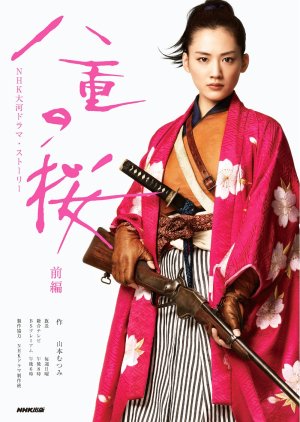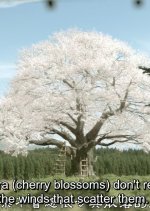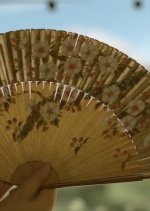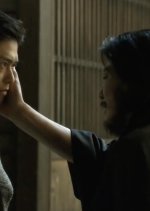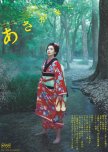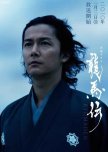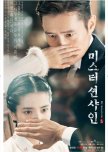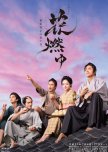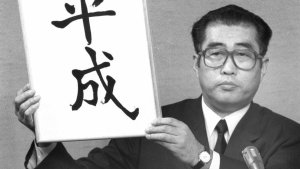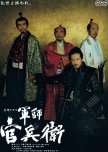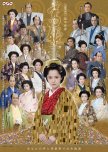 Japanese Actress Ashina Sei Dies at Age 36
Japanese Actress Ashina Sei Dies at Age 36 - Français
- Español
- 日本語
- English
- Titre original: 八重の桜
- Aussi connu sous le nom de: Yae's Sakura
- Scénariste: Yamamoto Mutsumi, Miura Yuiko, Tomoko Yoshizawa
- Réalisateur: Ichiki Masae, Sasaki Yoshiharu, Suenaga Hajime, Nakano Ryohei, Kato Taku
- Genres: Historique, Drame
Distribution et équipes
- Ayase Haruka Rôle principal
- Suzuki RioYamamoto Yaeko [Young]Rôle Secondaire
- Hasegawa HirokiKawasaki Shounosuke [Yae's first husband]Rôle Secondaire
- Odagiri JoeNiijima Jo / Joseph Hardy Neesima [Yae's second husband]Rôle Secondaire
- Nishijima HidetoshiYamamoto Kakuma [Yae's elder brother]Rôle Secondaire
- Matsushige YutakaYamamoto Gonpachi [Yae's father]Rôle Secondaire
Critiques

The whole series is focused on the REAL historical and political story of more than a decade - the Meji revolution and restoration. You HAVE to be interested in history, otherwise you will not enjoy this.
There is no romance or drama or villains in the sense we drama-lovers are used to. You will get no romantic scenes or unrealistic depictions of anything. Even when the heroine marries, you will not see her kiss or ever know whether they"consumed" the marriage or whatever.
You can call this a very dry story, because it lacks the "extra fantastic spice", but because of this, it is very pure, too. The story blossoms like a flower and you get attached to its characters very slowly, but on a deep level, it's like you share their experiences with them, because you take part in so much and for such a long time. And believe me, when you enter the mid-20th episodes, it will be gutt-wrenching what you witness and what you know were real life events... (Byakkotai, Saigo Tanomo's female family, etc.). This drama is by no means something for the faint hearted - it shows what the Boshin war was like, without any gruesome scenes, but perfectly portraying the events of such.
I love history and although I knew already some background facts about the end of the Bakumatsu period, I have never seen anything where the historical and political development of the 1860s is presented in such a detailed way. I learned so much about the clan wars of those times. You can watch and at the same time google the characters (the names are displayed) - they're are real. Also, at the end of every episode there are a few minutes of documentation about historical sites that are connected to these events! What a bonus! The documentary character is emphasized by the voice of a woman, who in each episode will resume some events or political settings, thus giving us a better overview.
It is quite outstanding to see the plot from Aizu's perspective (because Yae is Aizu), because they were the ones protecting the Shogunate in the end. (For those who don't know how history went, I don't want to spoil what's going to happen, so I won't say more on the content). As many others I had the opinion that they were just conservative and against change, but this drama showed me that in fact, they were victims to overall circumstances, too.
The directing and scenery are top-nodge, it is as realistic as it can get. Like a veeery long historical movie. I am happy with the actors, with the exception of (sadly) the main actress! I find her acting too obvious and she depicts Yae in a naive, plain way that I don't like or see fitting. In the opening of each episode (which is by the way maybe the most beautiful I have ever seen, beating even that of Nirvana on Fire), Yae is clearly stated as the heroine in such an dramatic and elegant way, that it just doesn't fit her display in the episodes itself. But oh well, that's a comparatively minor letdown.
So, for you out there, who love history and are interested in the end of the Samurai-period, this is maybe the rarest drama-jewel out there. Let me know what you think.
Cet avis était-il utile?

The scent of blooming sakura
Yae no Sakura is the 52nd NHK taiga drama that was aired in 2013. It is a biographical depiction of Niijima Yae, also known as Yamamoto Yaeko, famed for her exceptional gunnery skills which she applied to great effect in defending the Aizu Domain during the Boshin War. This momentous event during the late Endo period forever immortalised her as “Jeanne d'Arc of Bakumatsu”. Subsequently during the Meiji era, she then became renowned for helping establish the prestigious Doshisha University in Kyoto, together with her husband Joseph Hardy Neesima.Released in 50 episodes, this drama is epic in every single aspect. The screenplay is written by 3 screenwriters while 5 directors were engaged to helm this mammoth production. Starring a stellar ensemble led by the charismatic Ayase Haruka who is superbly supported by the likes of Odagiri Joe, Hasegawa Hiroki, and Nishijima Hidetoshi among many other supporting and guest actors.
There is an inspirational backstory to the release of Yae no Sakura. It was chosen as the 2013 taiga drama as its central narrative of loss and hope was felt to be timely in the aftermath of the March 11, 2011 Tohoku earthquake.
Personally for me, I consider Yae no Sakura as one of the most endearing biopics that I’ve ever come across. From the profoundly colourful story filled with numerous illustrious historical figures, the intricate details of the events that unfolded amidst the traditions of the era, to the themes exploring in great depth the changing role of women in the new modern Japan, as championed by Niijima Yae.
This is a big budget and high quality production that features exemplary cinematography, elaborately authentic sets, exquisite costumes, decently-executed action choreography and battle scenes, as well as beautifully shot natural landscapes, among various other aspects. Principal photography took place at Aizu region of Fukushima prefecture and Tsuruga Castle, also known as Wakamatsu Castle, Aizuwakamatsu Castle, and Kurokawa Castle. In the drama it is translated as Aizu Castle. It is a Japanese castle located in Otemachi, Aizuwakamatsu City, Fukushima Prefecture where the major battle between Aizu samurai warriors and government forces actually took place.
This drama is memorable for being the first production in 28 years since Haru no Hatou in 1985 where the actual person on which the main character is based remained alive until the Showa period. Additionally, it was the first time that a video footage of the actual main character of a taiga drama was used in the drama.
The performance of the entire cast is nothing short of remarkable where each of them gave a decent account of themselves. The real star of the show is undoubtedly Ayase Haruka. Her portrayal of Niijima Yae is testament to the immense talent and finesse that she possesses. Her captivating performance here garnered her the 10th TVnavi Drama of the Year 2013 leading actress award, adding to an already accomplished list of accolades. It’s worth mentioning the wonderful performance of the child actress Suzuki Rio, who played the younger version of Yamamoto Yaeko. She was both adorable and compelling in her depiction, despite the limited screen appearance that she had.
Special mention as well of the beautifully performed main theme of the drama, which was scored by the award-winning composer Ryuichi Sakamoto, in what was the first time he had ever composed music for a taiga drama.
50 episodes represent massive viewing hours indeed, but for Yae no Sakura, it was utterly worth every second. This drama presents a truly compelling insight into Japan’s culture and history during the transitioning of the Edo period to the Meiji era. If you’re a fan of Japanese dramas, her beautiful culture and exciting history, I strongly urge you to give this production a watch. It will definitely be worth your time.
Cet avis était-il utile?

